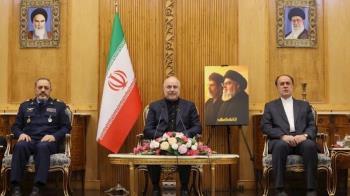ALWAGHT- Recent Israeli airstrikes on southern and eastern Lebanon have resulted in nearly 500 deaths and over 1,600 injuries, triggering widespread international condemnation.
Global leaders and organizations are expressing urgent calls for action to prevent further escalation of the conflict following a series of Israeli airstrikes on Lebanon that occurred on Monday. These attacks have resulted in at least 492 deaths, including 35 children, and injured over 1,600 individuals, according to Lebanon’s Health Ministry. The international community is alarmed by the humanitarian crisis unfolding as a consequence of the strikes.
In a meeting with Lebanese Foreign Minister Abdallah Bou Habib in New York, China’s Foreign Minister Wang Yi voiced strong support for Lebanon, condemning the “indiscriminate attacks on civilians.” He reaffirmed China's commitment to justice and solidarity, stating that military force undermines peace. The Arab League Council, convening alongside the UN General Assembly, echoed these sentiments, condemning Israel's actions and pledging support for Lebanon while emphasizing accountability for the Israeli regime.
Countries such as Turkey and France have also denounced Israel's attacks, with Turkey warning that the strikes could lead to greater regional instability. Turkey’s Foreign Ministry characterized the assault as a dangerous escalation, while France called for an emergency UN Security Council meeting to address the situation. EU foreign policy chief Josep Borrell expressed concern about the potential for full-scale war, urging coordinated global action to mitigate the conflict.
Leaders from various nations, including Venezuelan President Nicolas Maduro and Jordan’s King Abdullah II, have condemned the airstrikes and emphasized the need for international intervention. Maduro referred to the attacks as "genocide," framing them within a broader struggle against fascism, while King Abdullah reiterated his commitment to Lebanon’s sovereignty and called for an immediate end to hostilities in Gaza to achieve peace.
The ongoing airstrikes have triggered a mass exodus from southern Lebanon, with thousands fleeing toward Beirut, creating severe traffic congestion on major highways. In response to the crisis, Lebanon has suspended educational activities, converting schools and universities into shelters for displaced individuals. The country’s already strained healthcare system is struggling to cope with the influx of injured civilians, further exacerbating the humanitarian situation.



























